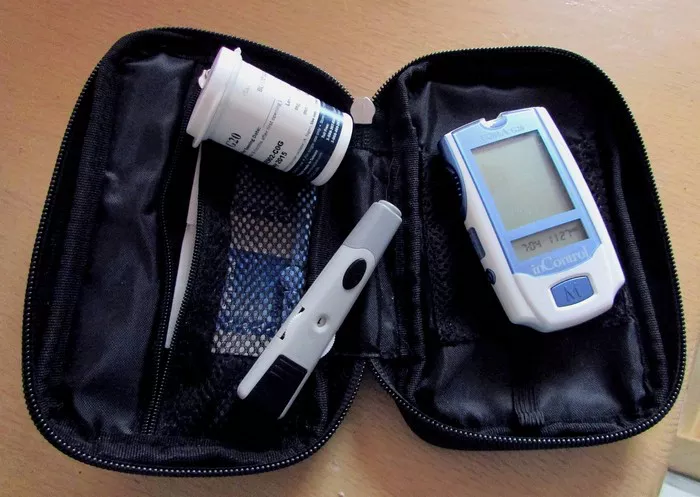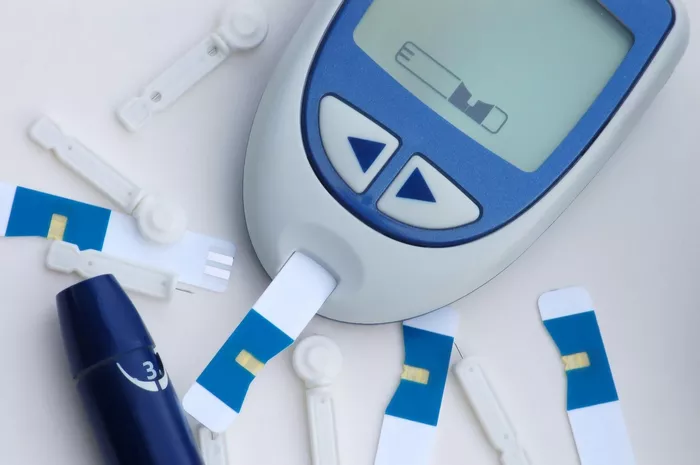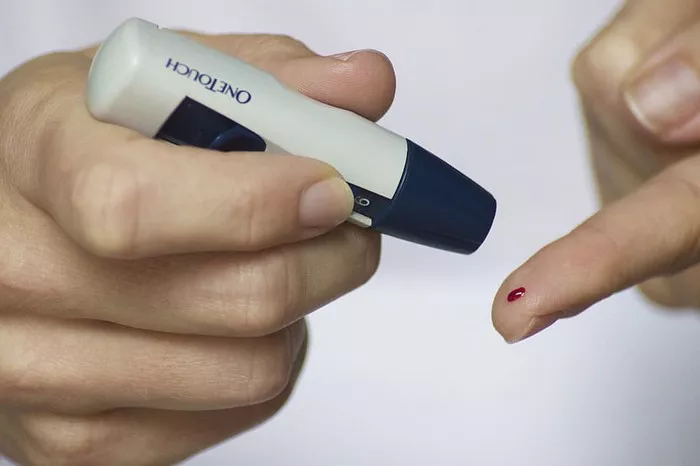The Role of Diet in Diabetes Management
Proper nutrition is a cornerstone in the management of diabetes. Both Type 1 and Type 2 diabetes require meticulous attention to dietary habits to maintain blood glucose levels within a target range, prevent complications, and improve overall quality of life. This article will delve into the essential reasons why eating properly is vital for individuals with diabetes, exploring the physiological impacts of nutrition, the benefits of balanced meals, and practical guidelines for dietary planning.
Physiological Impact of Diet on Diabetes
Blood Glucose Control
The primary goal in diabetes management is to maintain blood glucose levels as close to normal as possible. Proper nutrition plays a critical role in achieving this goal. Carbohydrates, proteins, and fats have different impacts on blood glucose levels:
- Carbohydrates: Carbohydrates are the primary source of glucose in the body. They directly affect blood sugar levels because they are broken down into glucose during digestion. Simple carbohydrates, such as sugars, cause rapid spikes in blood glucose levels, while complex carbohydrates, such as those found in whole grains, cause a more gradual rise.
- Proteins: Proteins have a minimal impact on blood glucose levels but are essential for muscle repair and growth. They also provide a sense of fullness, which can help prevent overeating.
- Fats: While fats do not directly raise blood glucose levels, they play a role in overall metabolic health. Healthy fats, such as those found in nuts, seeds, and fish, support heart health, which is crucial for individuals with diabetes who are at higher risk for cardiovascular disease.
Insulin Sensitivity
Insulin sensitivity refers to how responsive the body’s cells are to insulin. Poor diet can lead to insulin resistance, a hallmark of Type 2 diabetes. Diets high in refined sugars and unhealthy fats can exacerbate insulin resistance, whereas diets rich in fiber, healthy fats, and lean proteins can improve insulin sensitivity. Consuming a balanced diet that includes a variety of nutrient-dense foods can enhance the body’s ability to use insulin effectively.
Weight Management
Proper nutrition is integral to maintaining a healthy weight, which is particularly important for individuals with Type 2 diabetes. Excess weight, especially abdominal fat, is associated with increased insulin resistance. A balanced diet, combined with regular physical activity, can help achieve and maintain a healthy weight, thereby improving blood glucose control and reducing the risk of complications.
Benefits of a Balanced Diet in Diabetes Management
Reduced Risk of Complications
Eating a balanced diet can significantly reduce the risk of diabetes-related complications. Complications such as cardiovascular disease, kidney disease, neuropathy, and retinopathy are more likely when blood glucose levels are not well controlled. Nutrient-rich diets that are low in processed foods and high in fruits, vegetables, whole grains, and lean proteins support overall health and reduce the risk of these complications.
Enhanced Energy Levels
Individuals with diabetes often experience fluctuations in energy levels due to variations in blood glucose levels. A balanced diet helps stabilize blood sugar, providing a more consistent supply of energy throughout the day. This stability can improve daily functioning and overall well-being.
Improved Digestive Health
A diet high in fiber, such as from fruits, vegetables, whole grains, and legumes, promotes healthy digestion. Fiber slows the absorption of sugar, helping to regulate blood glucose levels. It also supports gut health, which is increasingly recognized as an important factor in overall metabolic health.
Practical Guidelines for Diabetes-Friendly Nutrition
Emphasize Whole Foods
Whole foods, such as vegetables, fruits, whole grains, lean proteins, and healthy fats, should be the foundation of a diabetes-friendly diet. These foods provide essential nutrients without the added sugars and unhealthy fats found in many processed foods. Whole foods also tend to have a lower glycemic index, meaning they have a gentler impact on blood sugar levels.
Monitor Carbohydrate Intake
While carbohydrates are an important part of the diet, it is crucial to monitor their intake and choose high-quality sources. The following strategies can help:
- Carbohydrate Counting: This involves keeping track of the number of carbohydrates consumed at each meal and snack. It helps individuals manage their blood glucose levels more effectively.
- Glycemic Index: Choosing foods with a low glycemic index can help prevent sharp spikes in blood glucose. Foods such as whole grains, legumes, and non-starchy vegetables are good options.
- Portion Control: Eating appropriate portions of carbohydrate-containing foods can help manage blood glucose levels. Using tools such as measuring cups and food scales can assist in controlling portion sizes.
Include Healthy Fats
Incorporating healthy fats into the diet is essential for cardiovascular health, which is a major concern for individuals with diabetes. Sources of healthy fats include:
- Monounsaturated Fats: Found in olive oil, avocados, and nuts, these fats can help improve blood lipid profiles.
- Polyunsaturated Fats: Found in fatty fish, flaxseeds, and walnuts, these fats are beneficial for heart health and have anti-inflammatory properties.
- Omega-3 Fatty Acids: These essential fats, found in fish like salmon and mackerel, play a crucial role in reducing inflammation and supporting heart health.
Prioritize Lean Proteins
Proteins are essential for muscle maintenance and repair, and they can help stabilize blood glucose levels by slowing the absorption of carbohydrates. Lean protein sources include:
- Poultry: Skinless chicken and turkey are excellent sources of lean protein.
- Fish: Fatty fish such as salmon, mackerel, and sardines are rich in omega-3 fatty acids.
- Plant-Based Proteins: Beans, lentils, tofu, and tempeh are good sources of protein for vegetarians and vegans.
- Low-Fat Dairy: Options such as Greek yogurt and cottage cheese provide protein without excess fat.
Stay Hydrated
Proper hydration is essential for overall health and can aid in the management of diabetes. Water is the best choice for hydration, as sugary drinks can cause blood glucose spikes. Other good options include unsweetened tea and coffee, and in moderation, milk or milk alternatives.
Plan Balanced Meals
Planning balanced meals that incorporate a variety of food groups can help manage diabetes effectively. A balanced meal typically includes:
- Non-Starchy Vegetables: These should make up about half of the plate. Examples include leafy greens, broccoli, cauliflower, and bell peppers.
- Protein: About one-quarter of the plate should be a lean protein source.
- Healthy Carbohydrates: The remaining quarter of the plate can include whole grains, legumes, or starchy vegetables.
- Healthy Fats: Include a small amount of healthy fats, such as olive oil, nuts, or avocado.
Mindful Eating
Mindful eating involves paying attention to the eating experience and being present during meals. This practice can help individuals with diabetes make better food choices, recognize hunger and fullness cues, and enjoy their meals more fully. Strategies for mindful eating include:
- Eating Slowly: Taking time to chew and savor food can improve digestion and satisfaction.
- Avoiding Distractions: Eating without distractions such as television or smartphones can help focus on the meal.
- Listening to the Body: Paying attention to hunger and fullness signals can prevent overeating.
Special Considerations for Different Types of Diabetes
Type 1 Diabetes
For individuals with Type 1 diabetes, insulin therapy is a critical component of managing blood glucose levels. The timing and composition of meals should be carefully coordinated with insulin administration. Carbohydrate counting is especially important, as it helps determine the correct insulin dose. Additionally, frequent blood glucose monitoring is necessary to understand the impact of different foods on blood sugar levels.
Type 2 Diabetes
Individuals with Type 2 diabetes often have insulin resistance and may be on various medications to manage their condition. Lifestyle changes, including proper nutrition, play a significant role in managing Type 2 diabetes. Weight loss, if needed, can improve insulin sensitivity and blood glucose control. A focus on a balanced diet that supports weight management and addresses insulin resistance is crucial.
Gestational Diabetes
Gestational diabetes occurs during pregnancy and requires careful management to ensure the health of both the mother and the baby. Proper nutrition helps maintain blood glucose levels within a safe range. This includes:
- Balanced Meals: Incorporating a mix of carbohydrates, proteins, and fats to stabilize blood sugar levels.
- Frequent Monitoring: Regular blood glucose checks to monitor the impact of food on blood sugar.
- Collaboration with Healthcare Providers: Working with a dietitian and healthcare team to create a personalized meal plan.
Conclusion
Proper nutrition is fundamental to the management of diabetes, offering numerous benefits that extend beyond blood glucose control. By prioritizing a balanced diet rich in whole foods, individuals with diabetes can improve their overall health, reduce the risk of complications, and enhance their quality of life. Practical strategies such as carbohydrate counting, portion control, and mindful eating can make a significant difference in managing the condition effectively. With the right dietary choices, individuals with diabetes can achieve better health outcomes and enjoy a more vibrant and active life.
Related topics:
What Foods To Avoid If You Have Gestational Diabetes

























